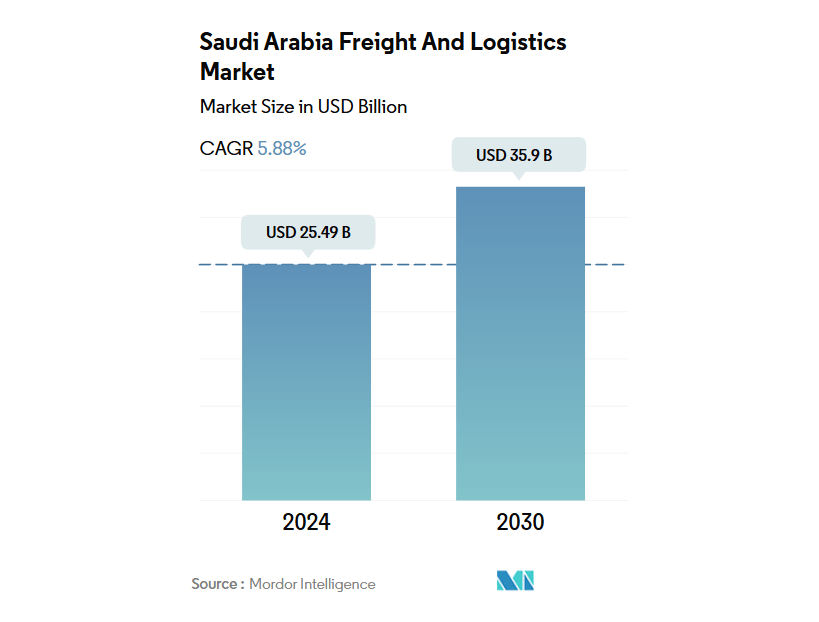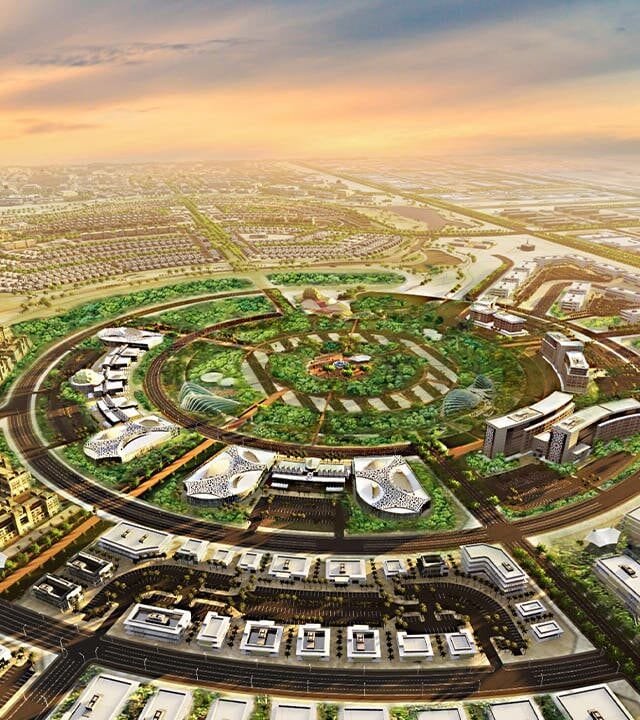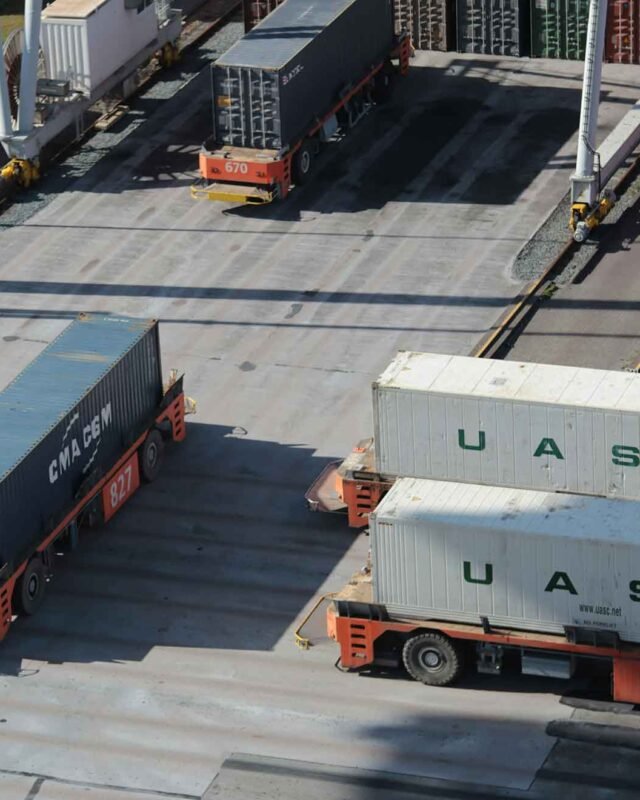Saudi Logistics Trends Q1 & Q2 2024: A Comprehensive Overview
The first and second quarters of 2024 are pivotal for the Saudi Arabia Freight and Logistics Market as they reveal emerging trends and set the pace for the future of logistics in the Kingdom. Here, we delve into the key trends shaping the Saudi logistics landscape in Q1 and Q2 2024.
1. Significant Market Growth in Saudi Logistics
The Saudi logistics market is poised for robust growth, with its size estimated to reach USD 25.49 billion in 2024. This expansion reflects the Kingdom’s ongoing commitment to enhancing its logistics capabilities, supported by substantial investments in infrastructure and technological advancements.

2. Air Freight Leading the Way
Air freight continues to be the fastest-growing segment in the Saudi logistics market, with a projected CAGR of 7.14% from 2024 to 2030. The transformation of Riyadh Airport into a major logistics hub with six runways is a testament to the Kingdom’s focus on bolstering its air freight capabilities. This development is expected to significantly enhance the efficiency and capacity of air logistics.
3. E-commerce Fueling Domestic Logistics
The e-commerce sector in Saudi Arabia is experiencing exponential growth, with a year-over-year increase of over 13% in 2023. This surge is driving the domestic logistics market, particularly the Courier, Express, and Parcel (CEP) segment. The increasing demand for fast and reliable delivery services is reshaping the logistics landscape, prompting companies to adopt innovative solutions to meet customer expectations.
4. Wholesale and Retail Trade Dominance
The wholesale and retail trade sector remains the largest end-user segment, commanding a significant share of the logistics market. This dominance is closely tied to the rapid expansion of the Saudi e-commerce industry, which is projected to grow at a CAGR of 13.47% between 2023 and 2027. The integration of smart logistics solutions, such as automated warehouses and AI-driven inventory management, is enhancing the efficiency of supply chains in this sector.
5. Investment in Smart Warehousing
The demand for smart warehousing solutions is on the rise, driven by the need for greater efficiency and accuracy in inventory management. In 2023, the construction of cold storage facilities saw a significant increase, highlighted by Sadr Logistics Company’s announcement of a USD 39.72 million logistics complex in Riyadh. These developments underscore the importance of temperature-controlled logistics, which is the fastest-growing segment with a projected CAGR of 6.79% from 2024 to 2030.
6. Infrastructure Enhancements
The Saudi government is making substantial investments in infrastructure to support the logistics sector. In 2023, SAR 40 billion (USD 10.6 billion) was allocated for road network improvements, including four highway projects under the Public-Private Partnership (PPP) model. These efforts are part of a broader USD 147 billion plan to develop the transportation and logistics sector, positioning Saudi Arabia as a global logistics hub.
7. Advancements in Maritime and Multimodal Transportation
Saudi Arabia’s maritime fleet has seen significant growth, with 368 tankers and ships boasting a total capacity of 13.5 million tons. The planned GCC railway, a USD 15.5 billion project, will further enhance regional connectivity, managing up to 29 million tons of goods annually. Smart logistics solutions, such as real-time tracking and predictive analytics, are crucial in optimizing these multimodal transportation networks.
8. Embracing Technology and Innovation
The integration of advanced technologies, such as IoT, AI, and blockchain, is revolutionizing the Saudi logistics market. These technologies enhance supply chain transparency, improve efficiency, and reduce costs. For instance, IoT-enabled temperature monitoring ensures the integrity of temperature-sensitive goods, while AI-driven predictive analytics optimize routing and inventory management.
9. Strategic Policy Reforms
Strategic policy reforms aimed at diversifying the economy are supporting the resilience of the Saudi logistics market. These reforms include easing regulatory requirements, providing incentives for foreign investments, and enhancing the overall business environment. Such measures are attracting global logistics players to invest in Saudi Arabia, further boosting the market’s growth.
Leveraging Insights for Future Growth
For stakeholders, understanding and leveraging insights on Saudi Logistics Trends Q1 & Q2 2024 is crucial for navigating the market’s complexities and capitalizing on emerging opportunities. Our team at Eurogroup Consulting is equipped with the expertise and resources to help you understand these trends, develop strategic plans, and implement smart logistics solutions that drive growth and efficiency in your operations.




